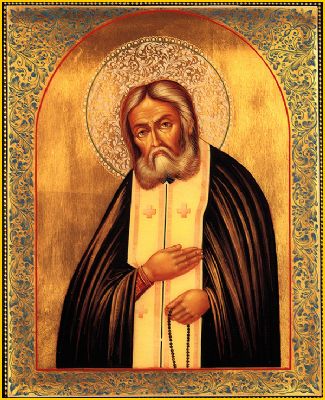|
|||
|---|---|---|---|
| This weekly bulletin insert complements the curriculum published by the Department of Christian Education of the Orthodox Church in America. This and many other Christian Education resources are available at http://dce.oca.org. | |||

Luke 9: 26 includes a warning from Our Lord. His words remind us that we are called to witness to Him no matter what the circumstances, and regardless of temptations to disavow Him in order to make our own lives easier. He says, "Whoever is ashamed of me and of my words, of him will the Son of man be ashamed when he comes in his glory and in the glory of the Father and the holy angels." The next verse is one that apparently still troubles people. Jesus says, "But I tell you truly, there are some standing here who will not taste death before they see the kingdom of God." A lengthy article in the New Yorker Magazine cited this verse as a "proof" that the whole story of Jesus Christ is questionable. The writer of the article understands the verse to mean that the Second Coming would take place during the lifetimes of some who were Jesus Christ's contemporaries. Since that did not happen, Christianity is based on a lie, or in fact a series of lies. But is that what Jesus means, that the Second Coming is imminent, and that some of those to whom He is speaking will live to see it? Does the fact that things didn't happen that way mean that Christianity is based on lies? Any Christian, especially one who knows some lives of saints and holy people, can confidently answer no to both questions. Saint Paul is the first one who helps us see what Jesus' words meant. In II Corinthians 12: 2-4 he writes about a man (himself, as later verses reveal) who "fourteen years ago was caught up to the third heaven—whether in the body or out of the body I do not know, God knows. And I know that this man was caught up into Paradise...and he heard things that cannot be told, which man may not utter." Certainly this vivid description shows us that Paul saw the Kingdom of God promised by Christ before he tasted death. 
But Paul's experience is not the only example. We know of many saints who in various ways saw and knew the Kingdom while they lived on earth. Saint John the Chozebite saw a light from heaven whenever he served the Liturgy. Other saints were seen to be surrounded by angels while they served at the altar. Saint Seraphim spoke about man known as Peter the Breadgiver, who offered a piece of bread to a beggar and received a vision assuring him that, because of his act of simple charity, all his sins were forgiven. There are innumerable other incidents like this. Some might see in these visions and revelations "proof" that Jesus' words are true. But they help us more if we accept them as God's gift of assurance that others have seen the destination of the path we are on, and know the journey is worth it. |
|||
